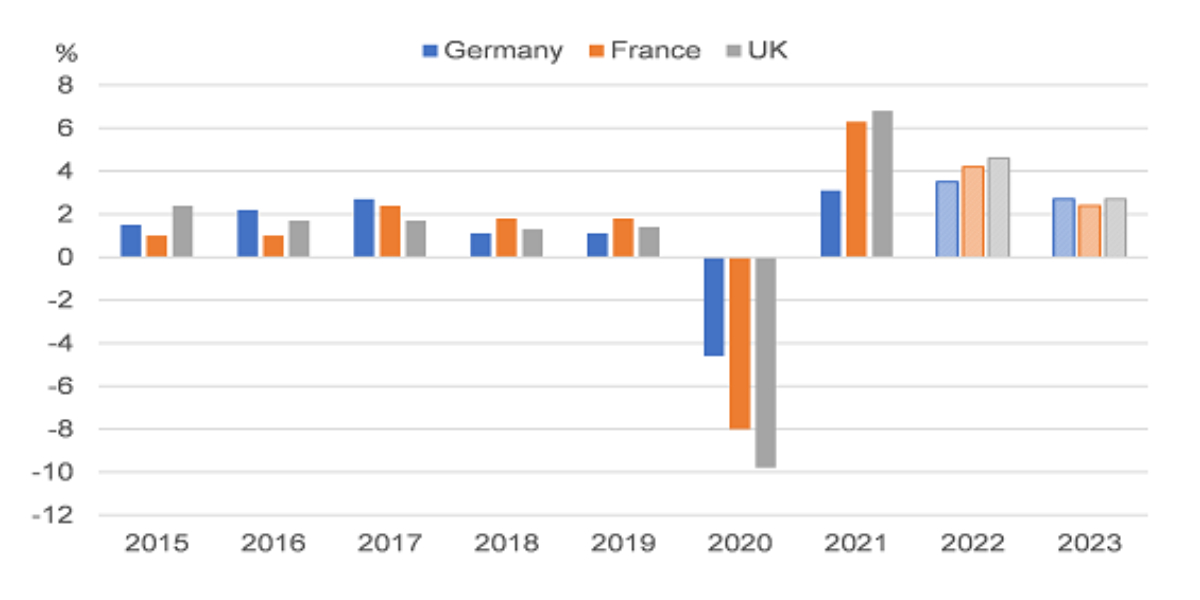Germany on Wednesday slashed its monetary increase forecast for 2022, weighed down by Russia’s invasion of Ukraine, which has sparked leaps in client expenses now not visible in a long time.
The gross domestic manufactured from Europe’s biggest financial system is now anticipated to amplify with the aid of 2.2% instead of 3.6% projected in January, the economic system ministry stated.
Inflation was meanwhile expected to jump to 6.1 percent for the year, “a rate seen only at times of the oil crisis or shortly after German reunification” in 1990.
Germany is “paying a price” for its backing of Ukraine against Russia’s unprovoked aggression, said Economy Minister Robert Habeck.
“We must also be ready to pay this price,” said the minister, noting that Germany was “paying through higher energy prices, through higher inflation and a slower growth.”
“This literally means that Germany will be poorer compared to the forecasts from three or four months ago.”
Berlin had previously pinned its hopes on a firm recovery for 2022 as the impact of the coronavirus pandemic begins easing.
But Russia’s aggression in Ukraine has laid waste to those plans. Instead, it has further exacerbated supply chain woes and pushed up prices of daily necessities.
Energy prices, in particular, have leaped since the war broke out, forcing the first German companies to take drastic action like idling their plants while consumers are faced with hefty power bills.
Germany, which is highly dependent on energy from Russia, was also facing a real threat of its gas supplies being cut off.
After Russia’s Gazprom turned off its gas taps to Poland and Bulgaria earlier Wednesday, Habeck took pains to assure that energy supplies in Germany remain “stable”.
“Europe will stand together in solidarity and further diversify its gas supplies,” he said.
Russia has reduced materials to Poland and Bulgaria over their refusal to meet Russian President Vladimir Putin’s call for payment in rubles.

















